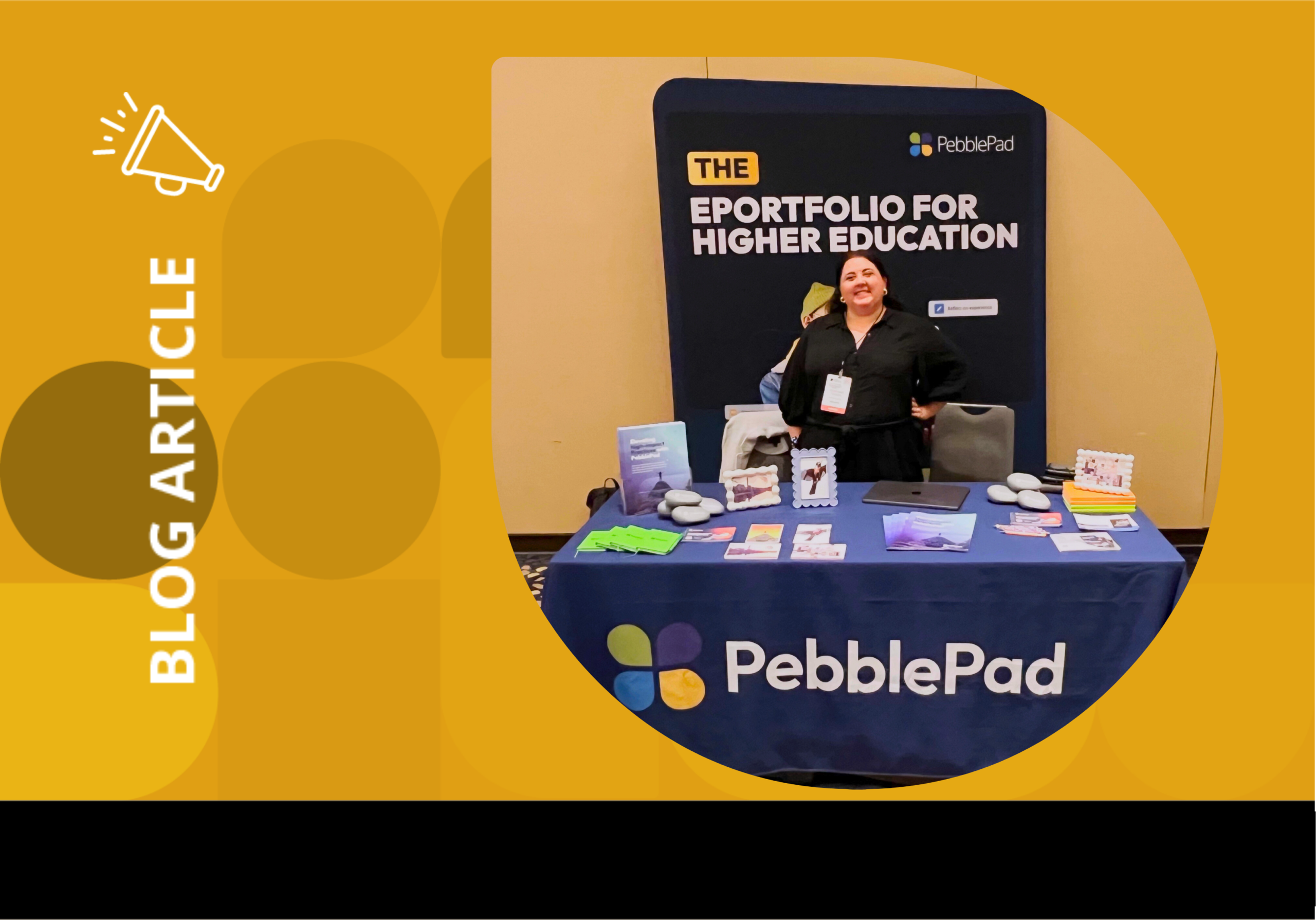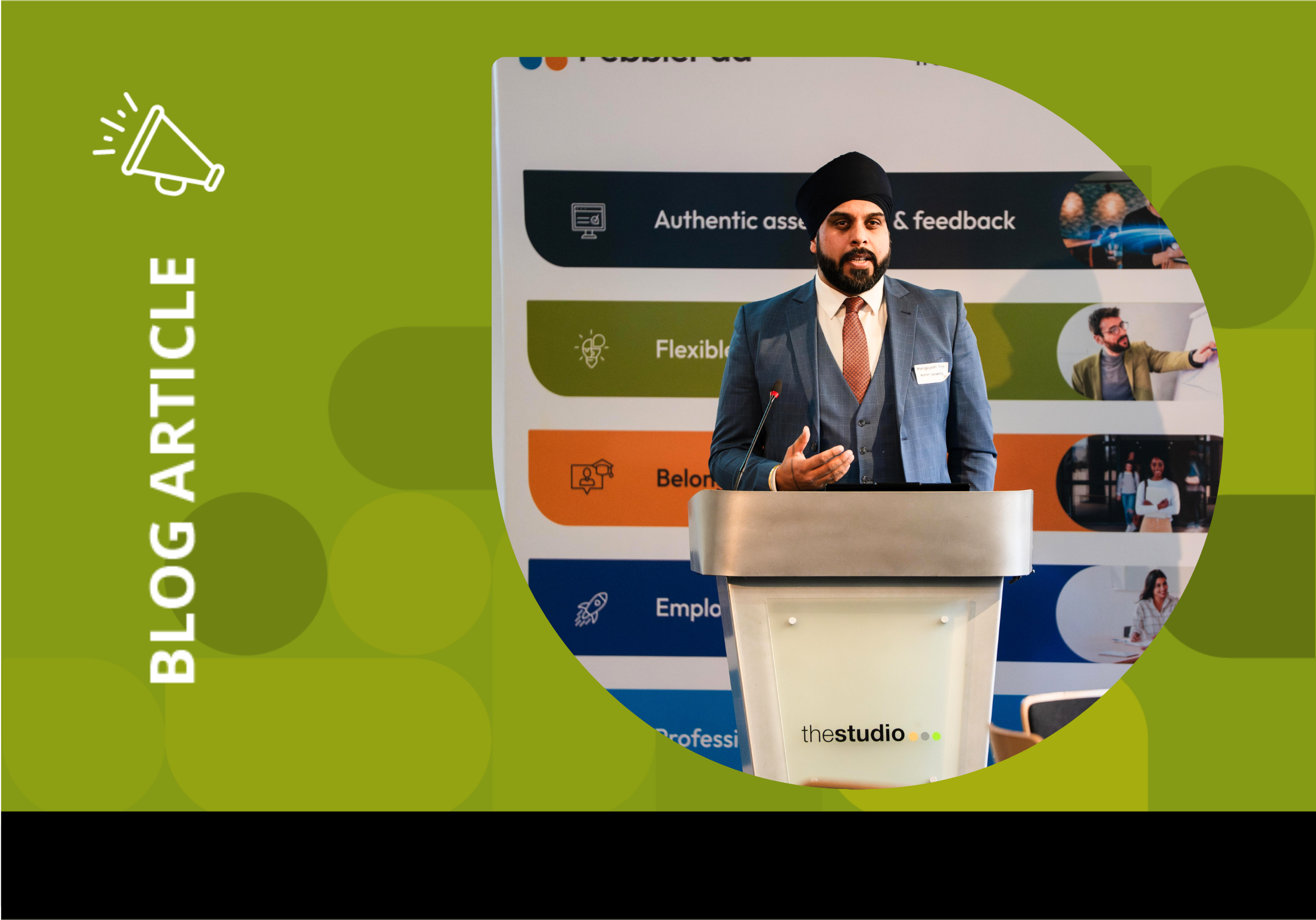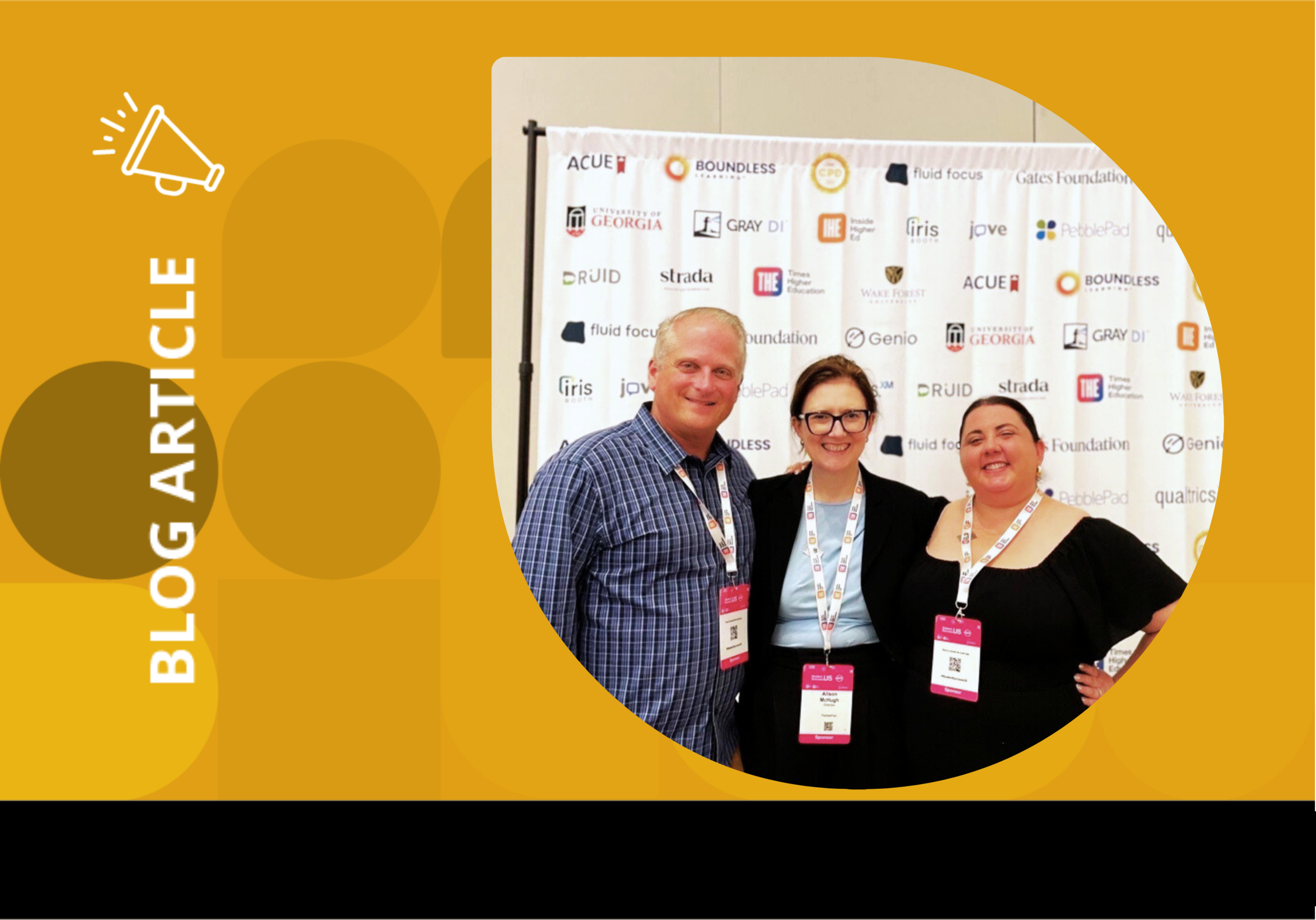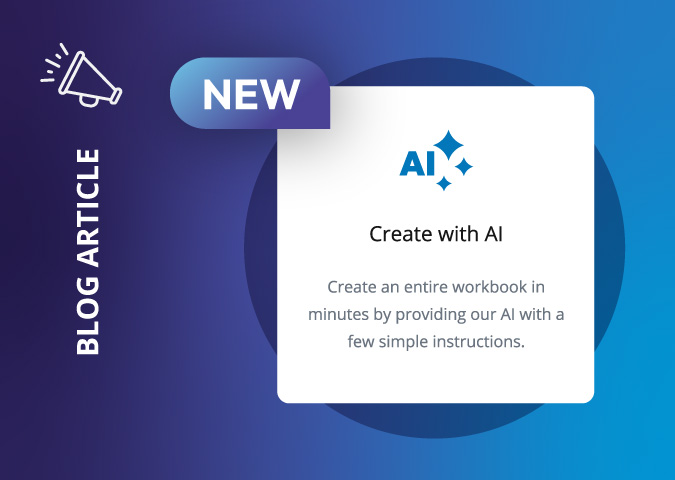In a recent Times Higher Education article, educators Rebecca Mace, Viktoria Magne, Sarah Hooper and Sharon Vince offer insights into the evolving landscape of higher education, where the rise of generative AI is causing significant disruption.
Tools like ChatGPT and Grammarly, once seen as aids, are now challenging the notion of authorship and originality in assessments. This rapid advancement has led to a flurry of reactive measures from institutions, which are grappling with the need to overhaul assessments while adhering to strict curriculum guidelines and dealing with the inconsistency of AI detection tools. To address the misuse of AI, the authors’ thesis proposes a shift towards authentic assessment design. This approach focuses on critical thinking, reflection and personal experience, rather than relying on formulaic responses.
Authentic learning
Their thesis struck a chord at PebblePad. We believe these values are essential to effective learning design and fittingly, the authors’ suggestions are both practical and innovative. For instance, essays can be structured around ethical dilemmas based on students’ real-life experiences. Literature reviews might incorporate AI tools openly with students documenting their use of research resources like Research Rabbit.
Annotated visuals and blog posts can also be transformed by encouraging students to respond through personal or contextual perspectives. The overarching theme of the thesis is a move from rote tasks to creating meaningful, learner-driven experiences – pedagogy that is integral and supported in PebblePad’s scaffolded learning ePortfolio platform.
The call for solutions is timely. A 2024 EDUCAUSE AI Landscape Study revealed that only 23% of higher education institutions have AI-related acceptable use policies in place, and nearly half of the respondents disagreed that their institution has appropriate policies to enable ethical and effective decision-making about AI use. This underscores the need for proactive strategies that go beyond policy-making to include pedagogical innovations. Sustainable solutions don’t come from stricter surveillance or longer rubrics, but from anchoring assessments in what makes the learning journey meaningful in the first place: critical thinking, reflection and context.
The case for reflective learning
By weaving metacognitive elements into assignments, educators are encouraging students to dive deeper into their learning journey processes, sparking engagement and understanding. This approach not only navigates the challenges posed by AI but presents a return to meaningful educational practices.
Reflection, central to PebblePad engagement, serves as a bridge, connecting course content with students’ personal aspirations, identities and experiences. This process not only makes learning more tangible and trackable but also brings it to life. Research underscores the advantages of reflective learning and practice – both bolstering critical thinking and fostering development in civic values and personal growth.
As educators integrate reflection into assessments, they are nurturing self-awareness and critical analysis – skills that are crucial in today’s AI-driven world. This emerging shift towards metacognitive learning promises to redefine the educational experience, making it more relevant and impactful for students.
Reframing assignments: Three paths forward
1. Design for transparency, not just completion
Instead of asking students to produce polished outputs, invite them to reveal the process behind their work. What inspired their approach? How did their ideas evolve? What roadblocks did they face? Transparency reintroduces the learner’s voice and makes it harder to outsource the journey to AI. Even if students use generative tools, a well-framed reflective learning component creates space for critical engagement and ownership of the final product.
2. Require evidence of thinking, not just answers
Whether it’s an ePortfolio, literature review or group project, encourage students to document how they applied classroom concepts in real-world settings. Ask them to include notes, media uploads, screenshots or annotated drafts that tell the story of their learning journey. By evidencing thought, not just output, educators create more resilient authentic assessments that showcase depth of understanding over polish.
3. Normalise iteration and formative assessment
Traditional assessments often emphasise single submissions, but a shift toward iterative work encourages feedback loops and authentic revision. Use templates or scaffolded workbooks where students draft, reflect and revise their ideas over time. These tools not only build skill but help students internalise the value of process and growth. Additionally, this approach reduces the pressure to submit AI-generated ‘perfection’ on the first try.
A platform built for the journey
PebblePad believes education isn’t just about what students produce – it’s about how they arrive there. That’s why our platform is designed to scaffold experiences across the lifecycle of the learning journey. From building ePortfolios that showcase growth to using custom templates for mapping competencies and reflections, PebblePad’s learning technologies help institutions centre authenticity at the heart of assessment. The challenges brought by AI are real – but so are the opportunities to reimagine what meaningful, learner-first education looks like.
The future of learning isn’t about outsmarting AI. It’s about creating learning experiences that cannot be outsourced.
















